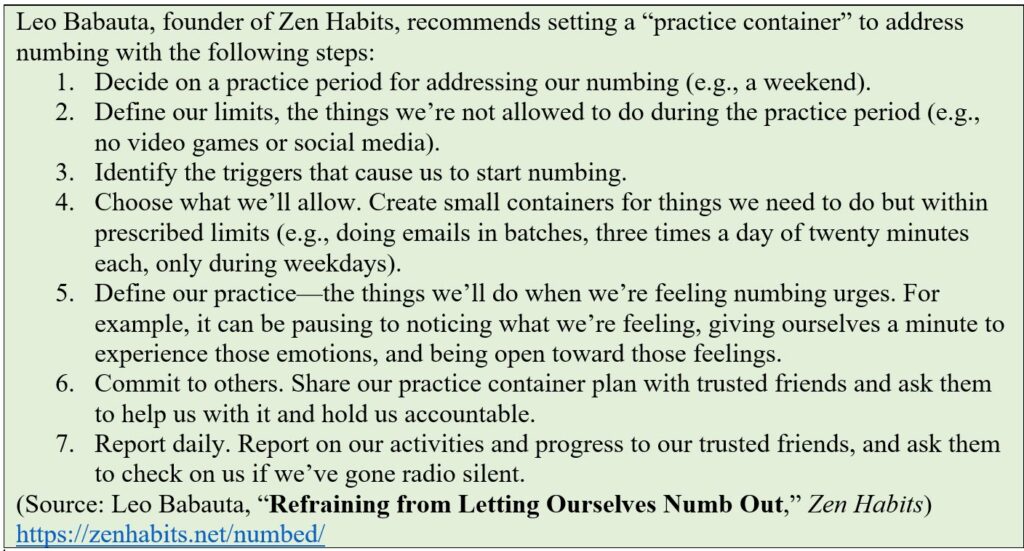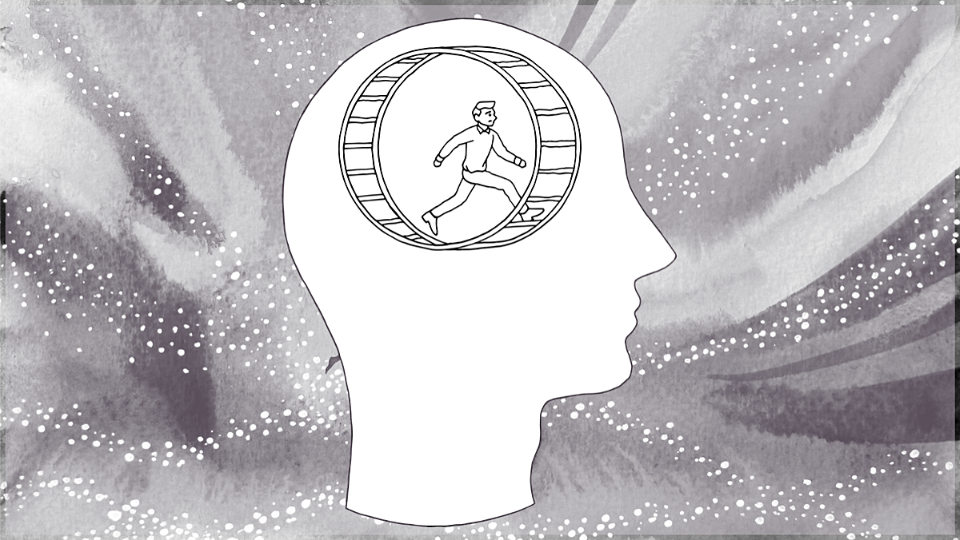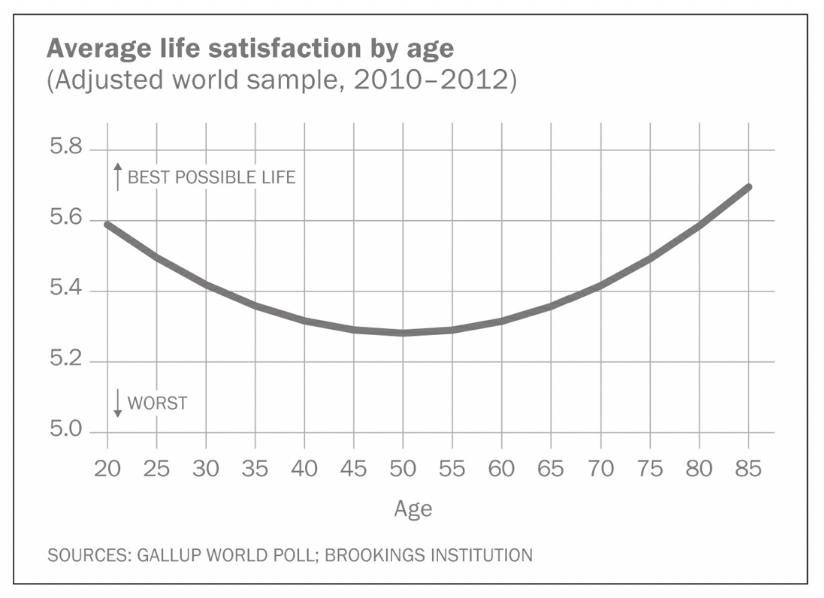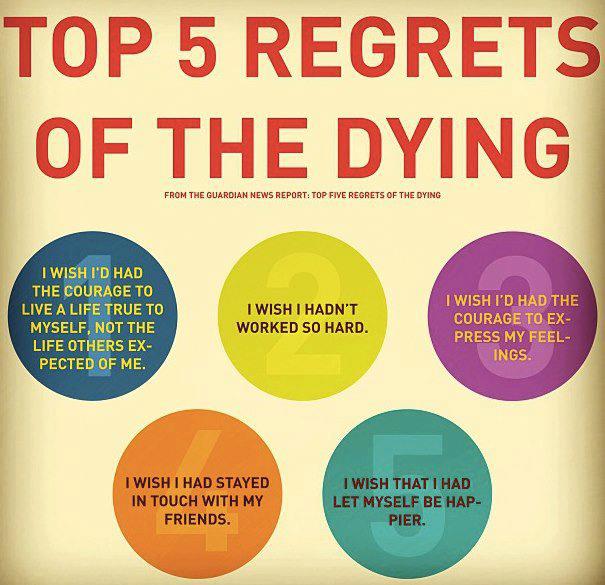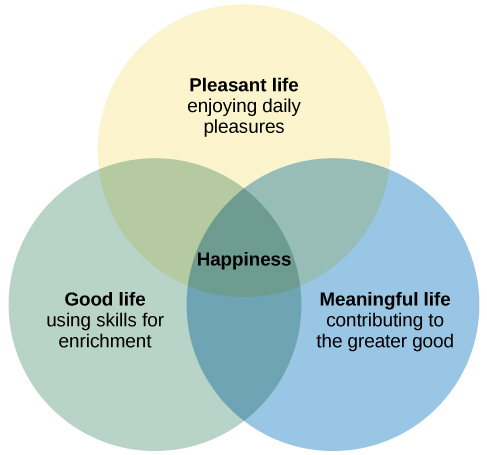We all do it sometimes. We put others’ needs ahead of our own. It’s called people-pleasing: having an excessive focus on making others happy at the expense of our own wants and needs. It’s been called “the disease to please.”
We use it to avoid risking the disapproval of others or the discomfort of standing up for what we want. It’s a form of self-neglect as we seek validation from others.
People-pleasing is related to what social psychologists call “sociotropy,” the tendency to place an inordinate value on relationships over personal independence. It often comes with a strong need for social acceptance.
People-pleasing is common. According to a 2022 YouGov poll of a thousand U.S. adult citizens, 49% self-identified as people-pleasers, with 56% of women and 42% of men describing themselves this way.
And it isn’t all bad. Far from it. If we take pleasure in doing things for others, that’s great, and there are real benefits to it. By valuing people, we foster connections. People see that we care and understand their needs. We’re good at getting along with others. We work hard. We’re a nice person who’s empathetic and intuitive.
There are evolutionary reasons behind people-pleasing. We all want to be appreciated and loved. We all adapt our behavior somewhat to make things go more smoothly when we’re with others.
The problem is when we take it too far—when we do it so much that we lose ourselves in others and neglect our own wants and needs.
One danger is that our brains are good at rationalizing it. Since it often involves helping others, we justify our people-pleasing and refuse to account for its many costs.
Of course, we don’t want to move too far in the other direction. Do we want to be people-displeasers? People-antagonizers? People-annoyers? (Yes, some are down for that.) If everything is all about us and what we want, and we never do anything to help others, that can be even worse.
Signs of People-Pleasing
There are many signs of people-pleasing. When we’re people-pleasing, we tend to:
- find it hard to say no
- agree to something we don’t want to do
- accept projects with unrealistic deadlines
- take on more than we can handle because we don’t want to disappoint someone
- shift our own plans and schedules to accommodate others’ needs
- have trouble setting boundaries between our work and personal time
- take responsibility for making people feel better if they’re upset
- try to help people even when they’re not asking for it
- apologize for things that aren’t our fault
- have a hard time asking for help
- show people warmth even when it’s not warranted
- flatter people even when we don’t like them
- want to appear perfect
- go out of our way to avoid conflict
- feel miserable when we’ve upset or disappointed someone
- disregard our own feelings because we don’t want to jeopardize our relationship
- hold our opinion back to maintain harmony
- seek frequent reassurance
- have a hard time directing people (e.g., children or employees) to do things
- get overscheduled and overburdened often
In short, we’d rather have our own needs go unmet than disappoint someone. When we’re a people-pleaser, we’re often the overworked one in our workplace (more so than others). It’s not a fun place to be.
“The corporate world loves people who are pleasers,
because we’re the ones who are always willing to take on any assignment.”
-Susan Schmitt Winchester, corporate HR executive and author
Where People-Pleasing Comes From
Where does it come from? If we’re going to be able to do something about it, first we need to understand it.
Beneath our people-pleasing lies a strong desire or need to be liked. We may have learned from childhood that the needs of others come first. Psychologists note that some children use people-pleasing as a coping mechanism to connect with parents who only give love under certain conditions or with parents who are strict disciplinarians or unpredictable. It’s also baked into some cultures and some people’s mistaken views about what it means to be a good woman, wife, mother, caregiver, worker, or friend, among other things.
A common source of people-pleasing is insecurity. If we struggle with validating our own needs and desires, we may seek external validation. We may feel that our own needs are unimportant—or unworthy of respect and love.
Often, it’s the manifestation of a deeper issue such as insecurity or a history of maltreatment that we haven’t yet processed fully. When we’re pleasing, we’re trying to gain acceptance and affiliation by helping, flattering, or saving others. We may worry that fighting for our own needs will drive others away.
People-pleasing often comes with perfectionism, including a strong desire for control over how others perceive us. Finally, people-pleasing tendencies can come from childhood trauma or abuse. We may naturally use pleasing others to help us feel safe and secure.
Common themes underlying all these sources are fear and anxiety.
“People-pleasing is an anxiety response…. (when we’re doing it) what we’re really saying is
‘I’m anxious about something. I’m anxious about not being liked. I’m anxious about being rejected.
Or I’m anxious that I’m not going to get what I want.’
People-pleasing is a manifestation of anxiety.”
-Natalie Lue, author
The Problem with People-Pleasing
Though it can have some benefits, as noted above, it also comes with many costs. For example, people-pleasing can lead to:
- stress
- anxiety
- overwhelm
- exhaustion
- burnout
- taking on tasks that others should do
- downplaying our own ideas and inner wisdom
- having people take us for granted
- becoming dependent on external validation
- having dysfunctional relationships in which people end up liking us for the wrong reasons
- diminished authenticity, connection, and intimacy in our relationships
- reduced visibility by others into how overstretched we are because we hide it so well
- others becoming dependent on us
- feeling inauthentic because we’re not living life on our own terms
- losing our own sense of identity
- lower motivation and confidence
- feelings of frustration, anger, resentment, and bitterness
- pain and regret (in some cases because we’ve used people-pleasing as an excuse not to pursue our dreams)
People-pleasing sometimes relies on assumptions about what others want, but often those assumptions are wrong. We can spend a lot of time and effort people-pleasing only to miss the mark.
In the end, people-pleasing inhibits our happiness, connection, and freedom. It can even lead to financial loss, physical jeopardy, or eating disorders (e.g., matching the group’s eating habits to make others feel comfortable).
Left unaddressed, people-pleasing can become a way of life as the whims of others determine our choices and trajectory.
How People-Pleasing Can Degrade Our Leadership
People-pleasing also has big implications in the workplace. Many leaders struggle with people-pleasing. For example, in two different surveys, 79-91% of pastors admitted to people-pleasing tendencies.
It can make us overloaded with work, pull us away from our most important work as we place others’ needs ahead of our own, and prevent us from learning to delegate and developing the capacities of our team.
People-pleasing can harm our credibility and integrity, our two most important leadership assets. People can sense it when we’re sugarcoating things, and they get frustrated when we’re not clear about what’s going wrong or what needs to change. They will also suffer if they only receive positive feedback, without actual things they can improve going forward.
People-pleasing can inhibit our leadership effectiveness when we get so invested in maintaining a positive rapport with our team that we fail to instill accountability and uphold the results imperative. Workers can take advantage of people-pleasing leaders by playing to their need to be liked and getting them to change their minds after meetings. This only causes frustration among other workers who are fighting hard to get good results the right way.
With people-pleasing, we can portray a false image of friendliness that may come back to haunt us when we need to take tougher action. It can make us avoid taking charge and lead us to tolerate poor performance or bad behavior. Part of the job of leadership is conveying difficult messages clearly and firmly, such as when performance isn’t up to snuff. But people-pleasing leaders tend to send mixed signals. Sometimes leaders need to bring the hard edge of leadership, the “steel.”
In short, people-pleasing can cause big problems for leaders, including indecisiveness, lack of direction and accountability, poor results, and attrition.
What to Do About It
Fortunately, there are many things we can do to escape the trap of people-pleasing. The first set of things has to do with our mindset, and the second with our behavior.
Starting with mindset, we can begin by recognizing that it’s healthy and normal to set boundaries and say no—and that we’re not responsible for how others feel. Self-worth and confidence come from within, not from others. People-pleasing isn’t heroic or noble. It’s not the same thing as kindness.
And we should understand that people-pleasing actually harms relationships because it degrades authenticity and integrity. Recognize that we can’t please everyone and that people-pleasers are often taken advantage of.
We should work at noticing when we’re engaging in people-pleasing (and tempted to)—as well as all its downsides. Meanwhile, we shouldn’t judge ourselves harshly for people-pleasing. We all have work to do in some areas. It’s also important to reflect on how we developed people-pleasing tendencies.
Where does it come from and is it serving us well or harming us?
The second set of things concerns our behavior. Here there are several actions we can take:
1. Buy time. When asked to do something, don’t answer right away. Take a pause. Check in with our emotions. Is the request bringing up overwhelm, resentment, or guilt if we say no? Our immediate urge to agree to all requests is the thing that’s been getting us into trouble. Ask for time to consider it. Let them know we’ll get back to them within a few days. That will give us time to process it, consider it in the context of our other obligations, and craft an appropriate response.
2. Scrutinize the request and the person it’s coming from. Consider whether the person may be taking advantage of us. Recall that healthy relationships are reciprocal, with both people giving and taking. Pay attention to whether we want to help or not. Think before committing.
3. Get clarity on our own purpose, core values, aspirations, and goals. Be clear about the things we want to say yes to—and which things fall out of that zone. Think of all the great things we’re missing out on when we’re neglecting our own wants and needs and doing all the things others want instead.
“You have to decide what your highest priorities are and have the courage—
pleasantly, smilingly, non-apologetically—to say ’no’ to other things.
And the way to do that is by having a bigger ‘yes’ burning inside.”
-Stephen R. Covey, author
4. Time-block. Block out times in our calendar that are off-limits to outside requests because they’re preserved for our own priorities. Those become an automatic no except in extraordinary circumstances.
5. Practice saying no. Don’t assume that people will be hurt if we don’t agree to a request. It’s possible that they didn’t expect us to agree and that they respect us for guarding our time. Most people get that we all have to say no sometimes. The key is in how we go about it and whether we say no with firmness and grace. (Tip: keep track of our “yes: no ratio” so we can gauge how we’re doing on this front.)
6. Build our confidence and assertiveness. Contrary to popular option, these aren’t set in stone. We can develop them. (See my article, “How to Build Confidence in Yourself and Your Leadership.”)
7. Seek help from a mentor, coach, or therapist. Note that it’s not easy to shift out of longstanding habits like this, and it’s likely to take time. Sometimes our people-pleasing is unconscious, and for some it has become like second nature. Start small.
8. Repeat our approaches for overcoming people-pleasing again and again. Develop new habits and repeat them often, thus rewiring our brain and re-setting others’ expectations.
Conclusion
In the end, we have a choice about whether to live out of a fear of not being liked or out of a conviction that our own wants and needs are important and worth pursuing. Will we find a healthy balance between honoring our own needs and serving others, or will we subsume our needs to those of others?
If we don’t get this right, we’re likely to regret it. But if we summon the courage to be who we are and to fight for what we want and need, we’ll end up with more authenticity, joy, and fulfillment.
Wishing you well with it.
–Gregg

Reflection Questions
- To what extent are you people-pleasing?
- How is it affecting your well-being, quality of life, and leadership?
- What will you do, starting today, to address it?
Tools for You
- Traps Test (Common Traps of Living) to help you identify what’s getting in the way of your happiness and quality of life
- Quality of Life Assessment to help you discover your strongest areas and the areas that need work and then act accordingly
- Personal Values Exercise to help you clarify what’s most important to you
Related Articles, Books, and Videos
- “Are You Focusing Too Much on Others’ Needs?”
- “The Trap of Caring Too Much About What Others Think”
- “The Problem with Not Having Boundaries”
- “Getting to the Root Causes of Things: Why and How”
- “Getting Good at Overcoming Fear”
- “The Trap of Losing Yourself”
- “The Problem with Neglecting Our Inner Life”
- “The Hidden Trap Catching Many High-Achievers (Neediness)”
- “The Mental Prisons We Build for Ourselves”
- “The Perfectionism Trap—And How to Escape It”
- Salma Hindy, “Why People Pleasing Is Hurting You” TEDx talk
- Natalie Lue, The Joy of Saying No
Postscript: Inspirations on Overcoming People-Pleasing
- “Care about what other people think and you will always be their prisoner.” -Lao Tzu
- “People-pleasing comes from an underlying emotion of fear.” -Salma Hindy, Canadian engineer and comedian
- “…anytime we’re doing something that is more about influencing what others think of us than it is about authentically expressing ourselves… we end up out of integrity with ourselves.” -Christine Carter
- “Keep this question in mind: If I was no longer people-pleasing and abandoning myself and my needs, what would I be doing, thinking, and feeling?” -Maria Sosa
- “The first step toward change is to refuse to be deployed by others and to choose to deploy yourself.” -Warren Bennis, leadership author
- “When you are saying no authentically, you can also say yes authentically. You are doing things that are really in integrity with who you are, your values, and how you want to feel instead of doing them out of obligation or for some hidden agenda.” -Natalie Lue, author
- “We owe it to ourselves to stop (people-pleasing), because we are meant for more.” -Salma Hindy, Canadian engineer and comedian
- “A ‘No’ uttered from the deepest conviction is better than a ‘Yes’ merely uttered to please, or worse, to avoid trouble.” -Mahatma Gandhi
++++++++++++++++++++++++++++++
Gregg Vanourek is a writer, teacher, TEDx speaker, and coach on personal development and leadership. He is co-author of three books, including LIFE Entrepreneurs: Ordinary People Creating Extraordinary Lives (a manifesto for living with purpose and passion) and Triple Crown Leadership: Building Excellent, Ethical, and Enduring Organizations (a winner of the International Book Awards). Check out his Best Articles or get his monthly newsletter. If you found value in this article, please forward it to a friend. Every little bit helps!








